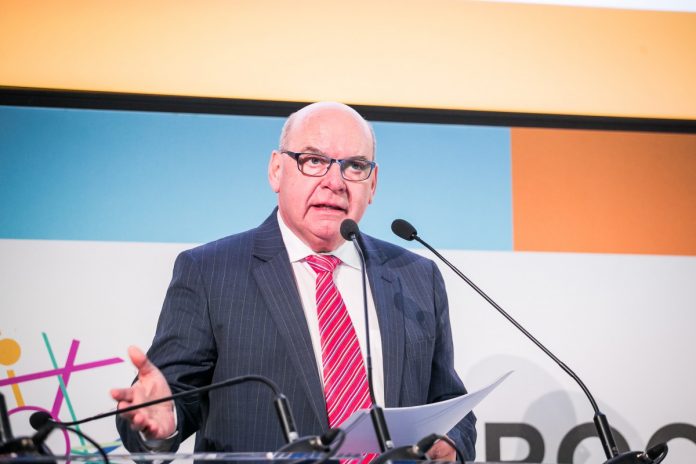Daniël Termont, Mayor of Ghent and current EUROCITIES president, outlines why cities are central to European democracy and how they can solve modern problems
The European Union is going through difficult times. People are feeling disconnected, and we are seeing conflicting visions giving rise to extremist ideas.
We must acknowledge and try to understand the concerns of Europeans; we need to look for solutions together. Together this is our opportunity to rethink Europe, to re-invent it, not from the top down but from the bottom up. As mayors, we know that democratic power stems from local communities. Through the EUROCITIES network, we represent 130 million engaged European citizens in over 135 cities, in which the government still works and the social contract still holds.
I am convinced that the future will be created in and by cities.
How can cities help remodel (European) democracy?
We need to start by involving citizens in the debate on Europe. Not just before elections, but at all times. The European Commission should be doing that too. Democracy isn’t simply about words, debate and discussion, it’s also about actions and results. It’s about working together to achieve our goals.
Europe needs to realise that the EU institutions are not a goal in themselves. Indeed, the institutions should be modest and understand that their role is as facilitators to make things happen. The EU institutions need to get around the table with cities, not just the member states. The European Commission has to start recognising cities as an important level of governance; taking city authorities into account when developing its policy.
The EU needs to make more of urban data and monitoring to shape its policy and governance. The Urban Agenda for the EU, launched in May 2016, is a very important step in the right direction. We urge the EU to give cities direct access to the Commission and to all relevant EU institutions. This would allow us to work together on some of the most pressing societal needs in Europe, such as the challenge of integrating refugees.
EUROCITIES could play an important role in shaping the future of European governance by encouraging the Commission to set up – and by playing an active role in – a taskforce to shape a new European vision and policy. As the new EUROCITIES president, I want to get things done in Europe.
At various levels, people have discussed the best possible way for cities to gain more governmental power.
One example is Benjamin Barber’s Global Parliament of Mayors. EUROCITIES would be ideally placed to take the lead on this within Europe. Back in 2014 the Committee of the Regions proposed setting up a ‘European Senate of the Regions’. This is an idea that dates back to the 1960s, when Walter Hallstein, one of the architects of European integration alongside Robert Schuman, and first ever chairman of the European Commission, already thought that, within Europe free regions should be able to influence decision making, based on a principle of equality. Should cities be part of such a senate? As far as I am concerned, it certainly deserves our consideration.
Cities have so much experience of dealing with such a variety of needs and challenges. We also still share enough common ground to move forward together. This is because cities are focused on getting things done, on the content, and on working together. For this reason, during Ghent’s presidency of EUROCITIES, I would like to organise a series of festivals on European democracy in all EUROCITIES member cities, and any other European cities wishing to join. We should reach out to everyone looking to build a better Europe, a more efficient Europe, and a more social Europe.
So let’s do it!
Daniël Termont
President
Mayor of Ghent (Belgium)











